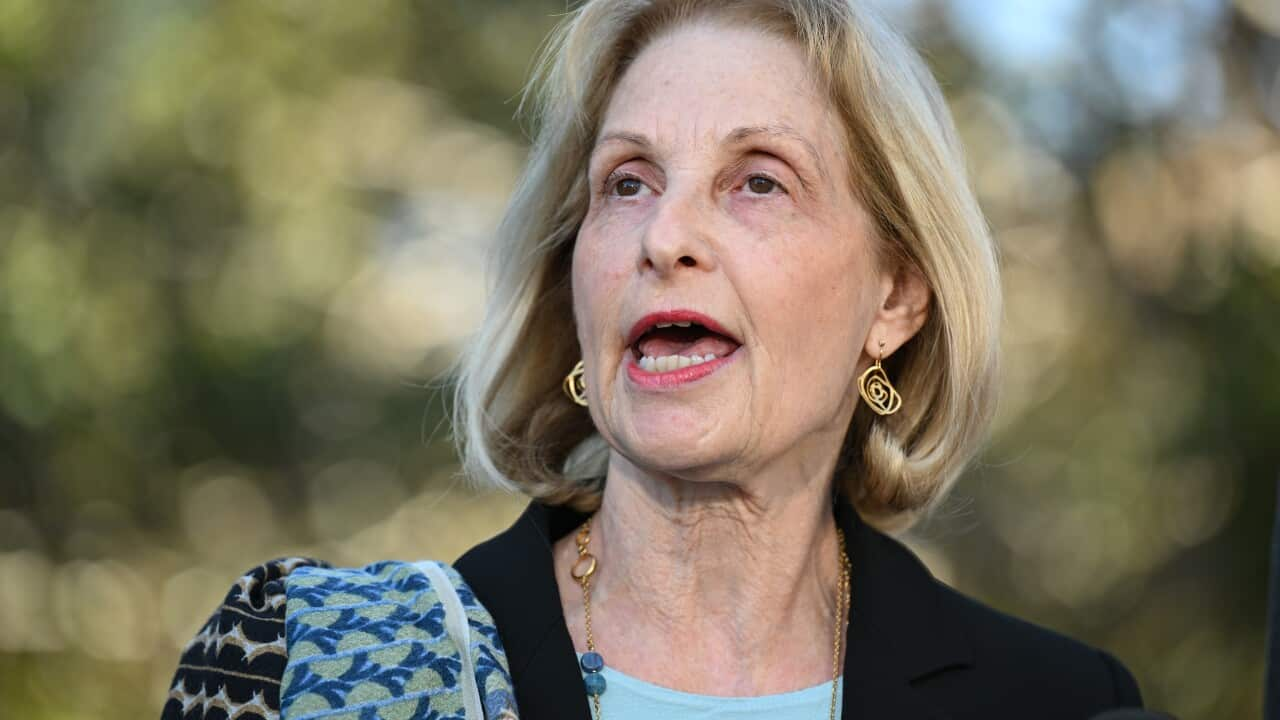Key Points
- Australia’s antisemitism envoy wants restrictions placed on when and where pro-Paletsinian protests can take place.
- One Palestinian advocate said Jillian Segal was trying to “silence critics of the Israeli government”.
- Prime Minister Anthony Albanese has said he would support a ban on protests being held outside places of worship.
Australia’s antisemitism envoy has faced criticism from human rights and advocacy groups after saying pro-Palestinian protests should be banned from city centres and labelling them “intimidatory” to the Jewish community.
Rallies in solidarity with people in Gaza have been held weekly in Melbourne and Sydney since the Hamas-Israel war began on 7 October, 2023.
The government’s special envoy to combat antisemitism, Jillian Segal, said while she understood protesters’ concerns over the war and their right to demonstrate, restrictions should be placed on when and where such rallies are allowed to take place.
“The cities should not be utilised for that,” Segal told SBS News on Wednesday.
“There should be places designated away from where the Jewish community might venture, where people can demonstrate.
“That is not to in any way attack the right of people to express their views, but at some point, [holding protest] every single week becomes intimidatory in the city.”
Amnesty International Australia criticised Segal’s remarks in a statement on Friday, saying protests were an “essential and protected outlet for Australians to freely express their views”.
“To characterise these demonstrations as ‘intimidatory’ is not only misleading but dangerous. It delegitimises the voices of those calling for justice in Gaza and beyond,” said Mohamed Duar, Amnesty International Australia’s occupied Palestinian territory spokesperson. “Criticism of state actions is not hate — it is the exercise of freedom of expression, a right that must be safeguarded, not suppressed.”
Segal said in her interview that the Israeli government was not immune from criticism, but it must be “the sort of criticism you could level at any other country”, such as its policies.
“But criticising the existence of the state of Israel and campaigning for its destruction is obviously not something that is acceptable,” she said.
Duar added the protests had been “overwhelmingly peaceful” and had “brought together diverse communities united by a shared commitment to human rights”.
He called on governments to protect the right to protest.
Antisemitism envoy claims protests have become ‘sinister’
Segal claimed the regularity of the protests had resulted in them moving from “an expression of one’s democratic right to express one’s view” to “something more sinister”.
“It’s not only a view about attacking the government or better conditions [for Palestinians], but it’s morphed into attacking the Jewish community,” she said.
“The flags that are there represent flags from a terrorist organisation, from time to time, or what is cried out has morphed into anti-Jewish sentiments, and that is attacking part of our own community.”
Organisers of pro-Palestinian protests have previously said the demonstrations are peaceful and have condemned any or
claimed Segal was attempting to “silence critics of the Israeli government”.
“People of good conscience across this continent know it is their moral duty to protest and speak out against Israel’s crimes and defend the lives, rights and dignity of Palestinians.
“They know that international law, democracy and history are on their side, and they will not be cowed.”
Protests have been held in Sydney every Sunday since the Hamas-Israel war broke out. Source: AAP / Brent Lewin
Mashni also described Segal’s remarks as “a thinly veiled attempt to muzzle legitimate … Australian dissent to Israel’s brazen and ongoing violations of international law”.
The October 7 attack was a significant escalation in the long-standing conflict between Israel and Hamas. It came after the Palestinian militant group — which also rules Gaza — , according to Israeli tallies.
Since then, according to Gaza’s health ministry, and plunging the Palestinian enclave into a deep humanitarian crisis.
Israel continues its attacks in Gaza after to immediately halt any military offensive in Rafah — in southern Gaza — and any other action that could lead to the destruction of the Palestinian civilian population in Gaza in whole or in part.
Many countries interpret the order as a halt of all military operations in Rafah, due to the obligations under the Genocide Convention.
But according to Israel’s interpretation, the ICJ ruling allows for targeted and precise military operations in Rafah, arguing these are defensive actions
Mashni also claimed that rather than helping to unite Australians, the federal government’s appointments of special envoys for and were “contributing to division in the community”.
“We call on the government to immediately dissolve these roles and commit to a holistic, evidence-based approach to tackling all forms of racism,” he said.
The government has previously said the appointment of these special envoys is part of its strategy to “ensure all Australians feel safe and included”.
PM supportive of moves to regulate protests
Segal’s comments come in the wake of recent attacks on Jewish communities and Melbourne.
Following last Friday’s in the Melbourne suburb of Ripponlea, NSW Premier Chris Minns announced his government would consider reforms to regulate protests outside religious institutions and places of worship.
On Wednesday, Prime Minister Anthony Albanese said those decisions were up to the states but expressed support for such moves, saying holding demonstrations outside places of worship creates “division”.
“You need to respect people’s faith,” he said.
“For people to demonstrate outside a place of worship is a provocative act which undermines whatever the cause may be that people are purporting to advance, because it completely alienates people who adopt a bit of common sense.”
NSW Council for Civil Liberties president Timothy Roberts cautioned against “kneejerk reactions”, telling The Guardian that those remarks were ill-considered.
Albanese also said he supported “people’s right to demonstrate peacefully and go to a park”.
“There’s a lot of squares they can go to,” he said.

